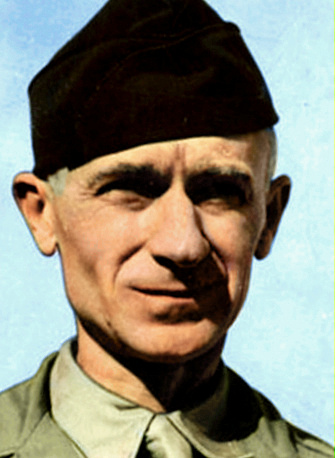Monahan: The Cajuns cavort at Playhouse
By Kaspar Monahan
…
Program needed for post-war stimulus
By Roger W. Stuart, Scripps-Howard staff writer
…
That’s reason why federal government grows – all have eye on post-war controls
By Charles T. Lucey, Scripps-Howard staff writer
…
WASHINGTON (UP) – President Roosevelt has approved legislation raising the federal debt limit from $260 to $300 billion, the White House announced today.
The debt now stands at $235 billion. Budget Bureau estimates forecast a debt of $292 billion at the end of the 1946 fiscal year – June 30, 1946.
What does an American woman think about while she is a prisoner of war? Here are a few words from an Army nurse brought home after being held by the Japs more than two years:
We thought and talked a lot about pretty clothes. We spent hours designing lovely things we’d like to wear. Soon as we reached home, we started out, with our backpay, to buy underthings to express ourselves under these uniforms.
Go ahead and express yourselves, ladies.
66% want law to prohibit it
By George Gallup, Director, American Institute of Public Opinion
…

By Ernie Pyle
WITH THE MARINES ON OKINAWA BEACHHEAD (by Navy radio) – You wouldn’t believe it. and we don’t either. It just can’t be true. And yet it is true.
The regiment of Marines that I am with landed this morning on the beaches of Okinawa and were absolutely unopposed, which is indeed an odd experience for a Marine.
Nobody among us had dreamed of such a thing. We all thought there would be slaughter on the beaches. There was some opposition to the right and to the left of us, but on our beach, nothing, absolutely nothing.
We don’t expect this to continue, of course. A Marine doesn’t fool himself like that. Certainly, there will be hard fighting ahead and we all have our fingers crossed. But to get the firm foothold we have, with most of our men ashore and our supplies rolling in, is a gift for which we are grateful.
More like home
This is Easter Sunday morning. It is a beautiful one. One of the Marines, after spending months in the tropics, remarked a while ago, “This weather feels more like American weather than anything since I left home.”
It is sunshiny and very warm. We had heard it would be cold and many of the boys wore heavy underwear. Now we are sweating and regretting. I wore two pairs of pants, but I am about to take off one of them.
We are dressed in green herringbone combat uniforms. Everybody made the trip in khaki and changed this morning aboard ship. The men left their old khaki lying on their bunks and they’ll be collected by the Navy, cleaned and used to clothe prisoners and our own casualties who have lost their clothes.
On our ship we were up to 4 a.m. We had done our final packing of gear last night. We brought ashore only what we could carry on our backs. When we put on our new green fatigues, one Marine remarked, “the latest Easter style – herringbone twill.”
Wonderful feeling
My schedule for landing was an early one. I was ashore a short time after the first wave. Correspondents were forbidden to go before the fifth wave. I was on the seventh.
I had dreaded the sight of the beach littered with mangled bodies. My first look up and down the beach was a reluctant one. And then like a man in the movies who looks and looks away and then suddenly looks back unbelieving. I realized there were no bodies anywhere – and no wounded. What a wonderful feeling!
In fact, our entire regiment came ashore with only two casualties. One was a Marine who hurt his foot getting out of an amphibious truck. And the other was, of all things, a case of heat prostration!
And to fulfill the picnic atmosphere, listen to this–
Aboard ship we had turkey dinner last night. So, this morning they fixed me up with a big snack of turkey wings, bread, oranges and apples. So instead of grabbing a hasty bite of K rations our first meal ashore, we sat and lunched on turkey wings and oranges.
Nice Easter
There are low chalky cliffs on this island. In these cliffs are caves. In the caves are brick-colored urns a couple of feet high. And in these urns are the ashes of many honorable ancestors.
Our bombardment had shattered many of these burial vaults. What our big guns missed, the soldiers and Marines took a precautionary look into by prying off the stone slabs at the entrances.
In front, looking out to sea, stands our mighty fleet with scores of little black lines extending to shore – our thousands and thousands of landing craft bringing more men and big guns and supplies.
And behind me, not two feet away, is a cave full of ex-Japanese, which is just the way it should be. What a nice Easter Sunday after all.